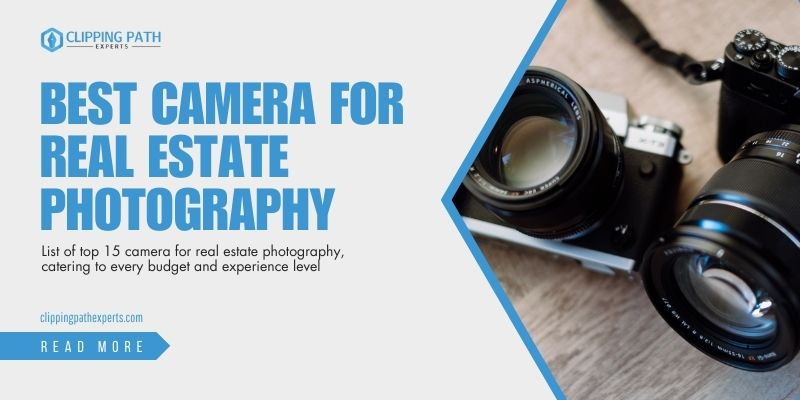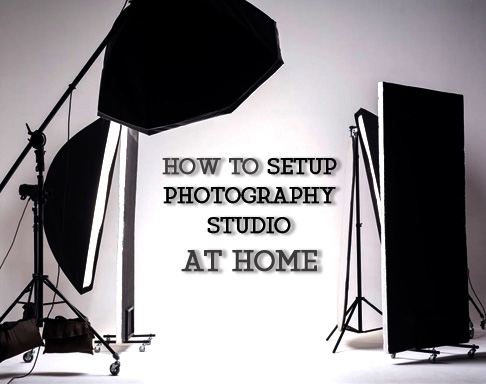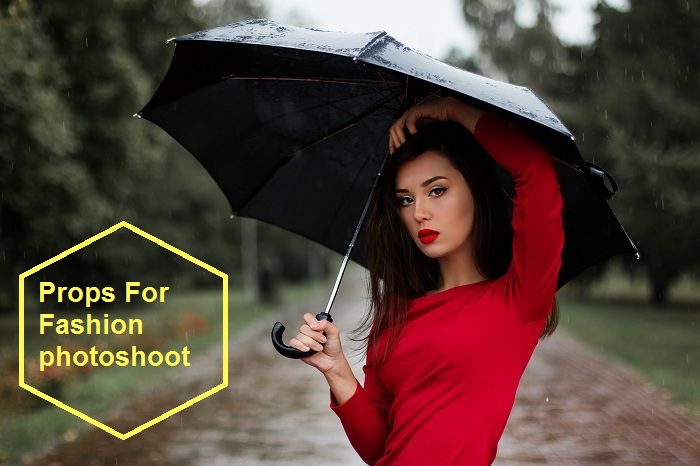Selling a property is all about showcasing its potential, and captivating photos are the key to unlocking buyer interest. But with so many cameras on the market, choosing the right one for real estate photography can feel overwhelming. Fear not, photo enthusiasts and real estate professionals alike! This guide dives deep into the top 15 camera for real estate photography, catering to every budget and experience level.
Whether you’re a seasoned DSLR pro or an eager smartphone snapper, we’ll uncover the essential features to consider, from powerful full-frame sensors to versatile mirrorless marvels, and even explore the exciting world of 360° virtual tours. Prepare to elevate your listings, captivate buyers, and discover the perfect camera to transform your real estate photography game!
15 Best Camera for Real Estate Photography You Must Have
Full-frame Mirrorless:
- Sony a7R IV: The Sony a7R IV is an excellent all-around camera for real estate photography, with a high-resolution 61MP sensor, fast autofocus, and excellent image quality at high ISOs. However, it is also one of the most expensive cameras on this list.
- Sony a7 IV: The Sony a7 IV is a more affordable option than the a7R IV, but it still offers a full-frame sensor, fast autofocus, and good image quality. It is a great choice for photographers who are looking for a versatile camera that can handle a variety of shooting conditions.
- Nikon Z9: The Nikon Z9 is a high-end mirrorless camera that is designed for professional photographers. It has a 45.7MP sensor, fast autofocus, and excellent image quality. However, it is also very expensive.
- Canon EOS R6 Mark II: The Canon EOS R6 Mark II is a full-frame mirrorless camera that is designed for professional and enthusiast photographers. It has a 26.2MP sensor, fast autofocus, and excellent image quality. It is a great choice for photographers who are looking for a versatile camera that can handle a variety of shooting conditions.
APS-C Mirrorless:
- Sony a6600: The Sony a6600 is an APS-C mirrorless camera that offers a good balance of performance and price. It has a 24MP sensor, fast autofocus, and good image quality. It is a great choice for photographers who are looking for a versatile camera that is still relatively affordable.
- Fujifilm X-T4: The Fujifilm X-T4 is an APS-C mirrorless camera that is known for its image quality and film simulations. It has a 26.1MP sensor, fast autofocus, and good image quality. It is a great choice for photographers who are looking for a camera with a unique look and feel.
- Canon EOS M6 Mark II: The Canon EOS M6 Mark II is an APS-C mirrorless camera that is designed for vloggers and content creators. It has a 32.5MP sensor, fast autofocus, and good image quality. It is a great choice for photographers who are looking for a compact camera that can shoot high-quality video.
Full-frame DSLR:
- Nikon D850: The Nikon D850 is a full-frame DSLR that is popular among professional real estate photographers. It has a 45.7MP sensor, excellent image quality, and a wide range of features. However, it is also quite expensive.
- Canon EOS 5D Mark IV: The Canon EOS 5D Mark IV is a full-frame DSLR that is another popular choice among professional photographers. It has a 30.4MP sensor, excellent image quality, and a wide range of features. However, it is also quite expensive.
APS-C DSLR:
- Nikon D7500: The Nikon D7500 is an APS-C DSLR that is designed for enthusiast photographers. It has a 20.9MP sensor, fast autofocus, and good image quality. It is a great choice for photographers who are looking for a versatile camera that is still relatively affordable.
- Canon EOS 90D: The Canon EOS 90D is an APS-C DSLR that is designed for professional photographers. It has a 32.5MP sensor, fast autofocus, and excellent image quality. However, it is also quite expensive.
Budget-friendly:
- Canon EOS Rebel SL3: The Canon EOS Rebel SL3 is an entry-level DSLR that is a great choice for beginners. It has a 24.1MP sensor, good autofocus, and image quality that is sufficient for most real estate photography needs. It is also very affordable.
Budget-friendly
- Nikon D3500: The Nikon D3500 is another entry-level DSLR that is a great choice for beginners. It has a 24.2MP sensor, good autofocus, and image quality that is sufficient for most real estate photography needs. It is also very affordable.
360 Cameras:
- Insta360 ONE X2: The Insta360 ONE X2 is a 360 camera that can be used to create virtual tours of properties. It is a great way to give potential buyers a more immersive look at a property.
- Ricoh Theta Z1: The Ricoh Theta Z1 is another 360 camera that can be used to create virtual tours of properties. It has a higher resolution sensor than the Insta360 ONE X2, but it is also more expensive.
Buying Guide to Choose the Best Camera for Real Estate Photography
Sensor Size and Resolution:
The size and resolution of the camera sensor are vital factors. A full-frame sensor provides better image quality and low-light performance, while higher resolution ensures sharp and detailed images that can be enlarged without compromising quality. Look for sensors with backside-illuminated (BSI) technology, which enhances low-light performance. This is one of the most important tip for digital photography.
Dynamic Range:
Opt for a camera with excellent dynamic range to capture a wide spectrum of tones. This is crucial when dealing with challenging lighting situations, such as interior shots with windows. Cameras with HDR (High Dynamic Range) capabilities can automatically merge multiple shots to enhance dynamic range.
Lens Options and Interchangeability:
A camera system with a variety of lenses allows real estate photographers to adapt to different shooting scenarios. Wide-angle lenses (around 16-35mm), tilt-shift lenses for correcting perspective distortion, and prime lenses for detailed shots are essential for capturing various aspects of a property. Ensure that the camera system has a diverse lens lineup.
Low-Light Performance:
Real estate photography often involves shooting interiors with varying light conditions. A camera with good low-light performance ensures clear, noise-free images in dimly lit spaces. Consider cameras with a wide ISO range and large apertures for better performance in low-light situations.
Autofocus System:
An advanced autofocus system is essential for capturing sharp images quickly, especially when photographing interior spaces with varying depths. Look for cameras with phase-detection autofocus, and dual-pixel autofocus technology for faster and more accurate focusing.
In-Body Image Stabilization (IBIS):
IBIS helps in reducing camera shake, providing sharper images, and allowing for slower shutter speeds, which can be advantageous in low-light situations. This feature is especially useful when shooting handheld in challenging conditions.
Articulating Screen:
An articulating screen is valuable for composing shots at awkward angles, especially when photographing tight spaces or capturing unique perspectives. A touchscreen interface can also enhance the overall user experience and make navigation more intuitive.
Video Capabilities:
With the rising importance of video content in real estate marketing, a camera with good video capabilities is a valuable asset. Look for 4K video recording, high frame rates, and features like focus peaking for smooth videography. Additionally, consider cameras with a headphone jack and microphone input for better audio control.
Weather Sealing:
Real estate photography may require shooting in various weather conditions. A weather-sealed camera offers durability and peace of mind when working outdoors. Check for a solid build quality with rubber gaskets and seals to protect against dust and moisture.
Remote Control and Tethering:
Cameras with built-in Wi-Fi or Bluetooth capabilities allow for remote control and tethering, enabling photographers to preview shots on a larger screen and make adjustments without physically touching the camera. Some cameras also offer advanced connectivity features, such as NFC (Near Field Communication) for quick pairing with compatible devices.
Battery Life:
A long-lasting battery is essential for capturing multiple shots without interruptions. Consider investing in spare batteries for extended shooting sessions. Look for cameras with energy-efficient processors and customizable power-saving settings to maximize battery life.
Size and Weight:
Real estate photographers may need to carry their equipment for extended periods. A camera that strikes a balance between functionality and portability is ideal for on-the-go shooting. Mirrorless cameras are often more compact and lightweight than their DSLR counterparts, making them a popular choice for real estate photographers.
User Interface and Controls:
Intuitive controls and a user-friendly interface are essential for efficient operation, especially in fast-paced shooting environments. Customizable buttons and a logical menu layout contribute to a smoother workflow. Consider cameras with touchscreens and customizable function buttons for quick access to essential settings.
Brand Ecosystem:
Consider the overall ecosystem of the camera brand, including the availability of lenses, accessories, and customer support. A robust ecosystem ensures long-term usability and adaptability. Check for compatibility with existing lenses if you are transitioning from another system, and assess the availability of third-party accessories.
Budget Considerations:
Finally, establish a budget based on your needs and preferences. While high-end cameras offer top-notch features, there are also excellent mid-range options that deliver impressive results for real estate photography. Consider the overall cost of ownership, including lenses and accessories, and real estate photo editing costs, to ensure that your investment aligns with your business goals.
Wrapping Up: Your Real Estate Photography Journey Begins!
Remember, the best camera is the one that fits your budget, skills, and shooting style. Don’t get caught up in megapixel wars or fancy features; focus on what you need to capture bright, clear, and inviting photos. Experiment, practice, and have fun!
With the right camera in hand, you’re ready to unlock a world of eye-catching real estate photography. So grab your gear, step into that beautiful property, and start snapping! Soon, you’ll be showcasing stunning homes and leaving potential buyers saying “Wow, this place is amazing!”






